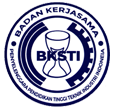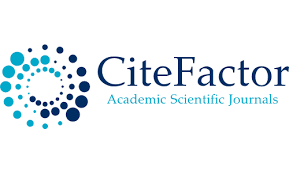Hazard Risk Assessment in Post Weld Heat Treatment Process Using the Fine-Kinney Method
Abstract
Keywords
Full Text:
PDFReferences
Albrechtsen, E., Solberg, I., & Svensli, E. (2019). The application and benefits of job safety analysis. Safety Science, 113, 425–437.https://doi.org/10.1016/j.ssci.2018.12.007
Ayuningtyas, A. I., & Nasri, S. M. (2021). Health Risk Assessment of Physical and Chemical Hazards in the Painting Area of a Manufacturing Company. The Indonesian Journal Of Occupational Safety and Health, 10(2), 247. https://doi.org/10.20473/ijosh.v10i2.2021.247-257
Bagdatlı, M. C., & KILIÇ, A. M. (2020). Occupational Safety Risk Analysis Of Organized Industrial Enterprises In Nevsehir Province Of Turkey By Fine-Kinney Method. International Journal of Engineering Technologies and Management Research, 7(7), 33–41. https://doi.org/10.29121/ijetmr.v7.i7.2020.722
Budiyanto, M. A., & Fernanda, H. (2020). Risk Assessment of Work Accident in Container Terminals Using the Fault Tree Analysis Method. Journal of Marine Science and Engineering, 8(6), 466. https://doi.org/10.3390/jmse8060466
Çalış Boyacı, A., & Selim, A. (2022). Assessment of occupational health and safety risks in a Turkish public hospital using a two-stage hesitant fuzzy linguistic approach. Environmental Science and Pollution Research, 29(24), 36313–36325. https://doi.org/10.1007/s11356-021-18191-x
Dogan, B., Oturakci, M., & Dagsuyu, C. (2022). Action selection in risk assessment with fuzzy Fine–Kinney-based AHP-TOPSIS approach: a case study in gas plant. Environmental Science and Pollution Research, 29(44), 66222–66234. https://doi.org/10.1007/s11356-022-20498-2
International Labour Organization (ILO). (2020). The Occupational Safety and Health Statistics (OSH database). https://Ilostat.Ilo.Org/Resources/Concepts-and-Definitions/Description-Occupational-Safety-and-Health-Statistics/.
Jaya, N. M., Dharmayanti, G. A. P., & Mesi, D. A. R. U. (2021). Manajemen Risiko K3 ( Keselamatan dan Kesehatan Kerja) Pada Proyek Pembangunan Rumah Sakit Bali Mandara. Jurnal Spektran , 9(1), 29–37.
Kuleshov, V. V, Yu Skuba, P., & Ignatovich, I. A. (2021). Assessment of the Severity of the Last Accident Based on the Fine-Kinney Method. IOP Conference Series: Earth and Environmental Science, 720(1), 012094. https://doi.org/10.1088/1755-1315/720/1/012094
Larasatie, A., Fauziah, M., Dihartawan, D., Herdiansyah, D., & Ernyasih, E. (2022). Faktor-Faktor Yang Berhubungan Dengan Tindakan Tidak Aman (Unsafe Action) Pada Pekerja Produksi Pt. X. Environmental Occupational Health And Safety Journal, 2(2), 133. https://doi.org/10.24853/eohjs.2.2.133-146
Luri, H., & Rinawati, D. I. (2019). Analisis Risiko Keselamatan Dan Kesehatan Kerja Dengan Menggunakan Job Hazard Analysis (Studi Kasus PT. Pertamina EP Asset 4 Field Cepu). Industrial Engineering Online Journal, 8(1), 1–11.
Lyon, B., & Popov, G. (2021a). Preliminary Hazard and Risk Analysis. In Risk Assessment (pp. 123–136). Wiley. https://doi.org/10.1002/9781119798323.ch6
Lyon, B., & Popov, G. (2021b). “What‐if” Analysis Methods. In Risk Assessment (pp.137–151).Wiley. https://doi.org/10.1002/9781119798323.ch7
Milli, A., Salman, S., & Sancak, E. (2021). Case of Risk Assessment by Using Fine-Kinney Method in Sub-Leather Processing. Journal of Engineering Sciences , 4(1), 42–57.
Muhammad, I., & Susilowati, I. H. (2021). Analisa Manajemen Risiko K3 Dalam Industri Manufaktur Di Indonesia: Literature Review. Prepotif : Jurnal Kesehatan Masyarakat, 5(1), 335–343. https://doi.org/10.31004/prepotif.v5i1.1635
Nasra, K. A., Zuldesmi, & Kewas, J. C. (2020). Pengaruh Post Weld Heat Treatment Terhadap Sifat Mekanik Dan Struktur Mikro Baja Karbon ST42 Dengan Pengelasan SMAW (Shielded Metal Arc Welding). Actuator Jurnal Teknik Mesin, 1(1), 26–36.
Occupational Safety Health Administration. (n.d.). Hazard Identification and Assessment. Retrieved April 15, 2024, from: https://www.osha.gov/safety-management/hazard-Identification
Penelas, A. de J., & Pires, J. C. M. (2021). HAZOP Analysis in Terms of Safety Operations Processes for Oil Production Units: A Case Study. Applied Sciences, 11(21),10210. https://doi.org/10.3390/app112110210
Ponda, H., & Fatma, N. F. (2019). Identifikasi Bahaya, Penilaian Dan Pengendalian Risiko Keselamatan Dan Kesehatan Kerja (K3) Pada Departemen Foundry PT. Sicamindo. Heuristic, 16(2). https://doi.org/10.30996/he.v16i2.2968
Purba, M. F. I., Al Fathier, & Fakhriza. (2020). Pengaruh Variasi Temperatur PWHT Dan Tanpa PWHT Terhadap Sifat Kekerasan Baja ASTM A106 Grade B Pada Proses Pengelasan SMAW. Journal of Welding Technology, 2(1), 13–18.
Rivera Domínguez, C., Pozos Mares, J. I., & Zambrano Hernández, R. G. (2021). Hazard identification and analysis in work areas within the Manufacturing Sector through the HAZID methodology. Process Safety and Environmental Protection, 145, 23–38. https://doi.org/10.1016/j.psep.2020.07.049
Sari, R. A., & Satrio, T. (2022). Optimization of Occupational Safety and Health Implementation in a Chemical Analytics Laboratory. The Indonesian Journal of Occupational Safety and Health, 11(1), 72–82. https://doi.org/10.20473/ijosh.v11i1.2022.72-82
Sotoodeh, K. (2023). A case study demonstrating the use of Layers of Protection Analysis (LOPA) in order to prevent fire and explosion in storage tanks due to overfilling. Safety in Extreme Environments. https://doi.org/10.1007/s42797-023-00095-3
Srinivas, K. (2022). HIRA in Excavation in High Rise Buildings. AMC Indian Journal of Civil Engineering, 5(1), 34. https://doi.org/10.17010/ijce/2022/v5i1/170370
Sunday, B. E. , C. S. C. O. C. J. , & A. K. M. (2022). Occupational Hazards And Safety Management System Among Small And Medium Scale Enterprises In Port Harcourt Metropolis, Rivers State. International Journal of Novel Research in Marketing Management and Economics, 9(3), 43–56.
Tamene, A., Mulugeta, H., Ashenafi, T., & Thygerson, S. M. (2020). Musculoskeletal Disorders and Associated Factors among Vehicle Repair Workers in Hawassa City, Southern Ethiopia. Journal of Environmental and Public Health, 2020, 1–11. https://doi.org/10.1155/2020/9472357
The National Institute for Occupational Safety and Health (NIOSH). (2023). Hierarchy of Controls. NIOSH. https://www.cdc.gov/niosh/topics/hierarchy/default.html
Uslu, A., & Uslu, G. (2022). Hazard Identification and Risk Analysis in Rebar Rolling Plant. Black Sea Journal of Engineering and Science, 5(3), 109–115. https://doi.org/10.34248/bsengineering.1101902
Weng, J., Gan, X., & Zhang, Z. (2021). A quantitative risk assessment model for evaluating hazmat transportation accident risk. Safety Science, 137, 105198. https://doi.org/10.1016/j.ssci.2021.105198
Yuliandi, C. D., & Ahman, E. (2019). Penerapan Keselamatan Dan Kesehatan Kerja (K3) Di Lingkungan Kerja Balai Inseminasi Buatan (Bib) Lembang. Jurnal Manajerial, 18(2), 98–109. https://doi.org/10.17509/manajerial.v18i2.18761
DOI: http://dx.doi.org/10.22441/ijiem.v6i1.26055
Refbacks
- There are currently no refbacks.

This work is licensed under a Creative Commons Attribution-NonCommercial 4.0 International License.
IJIEM - Indonesian Journal of Industrial Engineering & Management
Program Pascasarjana Magister Teknik Industri Universitas Mercu Buana
Kampus Menteng - Gedung Tedja Buana, Floor 4th
Jl. Menteng Raya No. 29 Jakarta Pusat- Indonesia
Tlp.: +62 21 31935454 Fax: +62 21 31934474
http://publikasi.mercubuana.ac.id/index.php/ijiem
Email: [email protected]

This work is licensed under a Creative Commons Attribution-NonCommercial 4.0 International License.
The journal is indexed by:





1.png)
.png)
.png)
.png)







